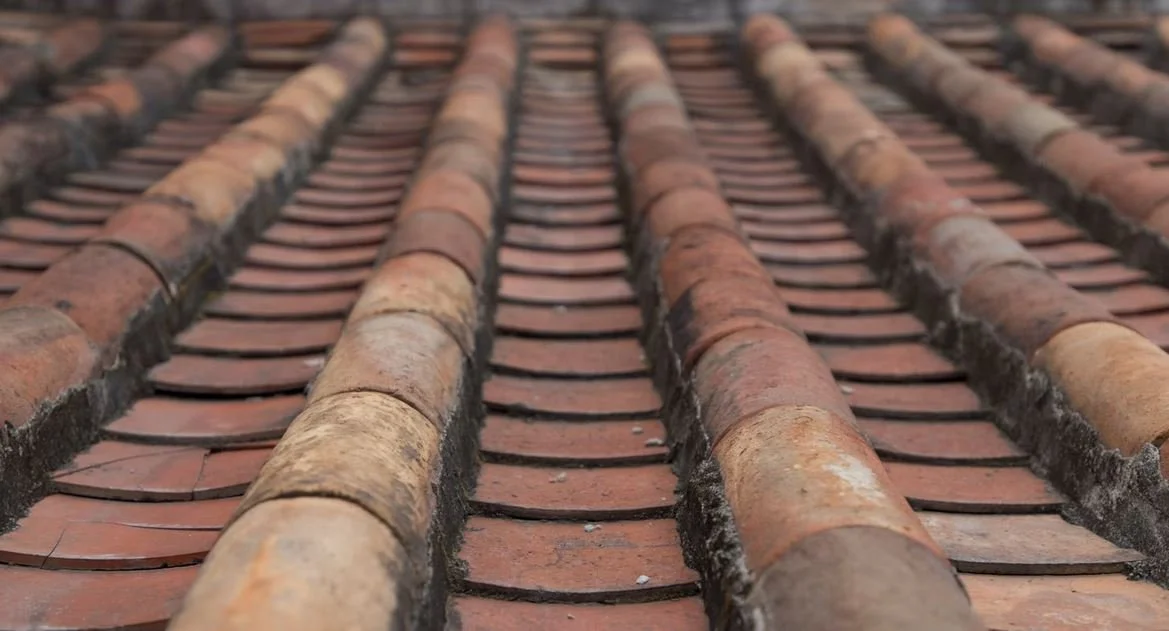House Smells Like Mildew After Rain (Solved)
Have you ever walked into your home after a rainstorm and been hit with a musty, damp smell?
It's a common issue, and while it's unpleasant, it's not something you have to just live with.
A house that smells like mildew after rain is usually a sign of moisture issues. Luckily, it's a problem that can be fixed with a little investigation and some effort.
In this post, I’ll explain why your house smells like mildew after rain, and what to do about it.
Why Does My House Smell Like Mildew After Rain?
Here are the most common reasons for that damp smell in your house:
Leaks In The Roof Or Walls
If water is leaking into your house through the roof or walls, it can cause dampness that leads to mildew growth.
This is especially likely after a rainstorm.
Sometimes the leaks are tiny and not immediately noticeable, but they’re still enough to create the right conditions for mildew to thrive.
You might not even see the water dripping—just the smell will be your first clue.
If the roof or walls are damaged or cracked, water can seep in unnoticed. Once moisture gets trapped inside, it creates a perfect breeding ground for mold and mildew.
Also Read: House Smells Like Skunk
Poor Ventilation
Homes that don’t get enough airflow are also more prone to mildew smells, especially after rain.
Without proper ventilation, moist air gets stuck inside and can’t escape. This moisture has nowhere to go but into the walls, floors, and ceilings.
Over time, the trapped dampness can cause mildew to develop.
It's a problem that often happens in basements or rooms that don’t get enough natural air flow, like laundry rooms or bathrooms.
Clogged Gutters Or Drainage Issues
Clogged gutters are another reason why your house smells like mildew after rain.
When gutters get full of leaves, debris, and dirt, they can’t channel water away from your roof properly. Instead, water can overflow and seep into areas where it shouldn’t be.
This moisture buildup can make its way into the walls or foundation, leading to mildew growth.
Similarly, drainage issues around the foundation of your home can cause rainwater to pool and seep into your basement or crawl space, where the smell of mildew is hard to miss.
Foundation Cracks
Speaking of drainage problems, cracks in your home’s foundation can also cause moisture to get inside.
Foundation issues allow water to infiltrate the space, bringing with it that musty smell.
When your foundation is compromised, the rainwater has no barrier to stop it from seeping into your home. That wetness can then encourage mildew and mold to start growing in dark, damp areas of your house.
Also Read: ozone smell in house
Existing Mold Growth
If you’ve dealt with mold before, you may already know that it can return.
Mold thrives in wet environments, so when it rains, mold that was previously dormant might wake up and start spreading again. Even if you don’t see visible mold, it’s possible that old growth is hidden behind walls, under floors, or in other hard-to-reach areas.
Once that mold starts producing spores, it can make the whole house smell musty.
How To Get Rid Of Mildew Smell In House
So, now that we know why your house smells like mildew after rain, let’s talk about how to get rid of it. Here’s what to do:
#1 Find The Source
Before you can start cleaning and deodorizing, you need to find where the moisture is coming from.
Check for visible signs of leaks around windows, doors, or the roof. Inspect your gutters and downspouts to make sure they’re clear and functioning properly.
If you’re not sure, it might be worth having a pro come in to check for leaks in hard-to-see areas, like the attic or behind walls.
If you suspect the issue is with your foundation, look for cracks in the concrete or walls. If you find any, you may need to patch them up or call a contractor for repairs. It’s also smart to check for water pooling around your foundation after a rainstorm.
If you notice standing water, that’s another sign that you have drainage problems that need fixing.
Also Read: What NOT To Use Dawn Powerwash On
#2 Dry Out Moisture
Once you’ve found the source of the moisture, the next step is to dry out the affected areas.
Use fans, open windows, and let natural airflow help dry things out.
If you’re dealing with a larger area, consider renting or buying a dehumidifier. A dehumidifier can help draw out moisture from the air, reducing the chances of mildew and mold growth.
If you’ve found damp carpets or furniture, they will need to be dried quickly. Try using towels to soak up excess moisture and consider using a wet/dry vacuum if it’s a bigger mess.
The faster you can dry everything out, the less likely the mildew smell will stick around.
#3 Clean Affected Areas
Cleaning is a big part of getting rid of the mildew smell from your house.
Once you’ve dried out the wet areas, it’s time to clean surfaces where mildew might have started to grow.
Start by wiping down walls, ceilings, and floors with a cleaning solution that can kill mildew and mold. You don’t need anything fancy—vinegar or hydrogen peroxide works wonders. Just spray it on, let it sit for a bit, then wipe it away with a cloth.
If you notice visible mold, you might need to scrub a little harder or even use a specialized cleaner.
Be sure to wear gloves and a mask if you're dealing with significant mold growth, as breathing in mold spores can be harmful.
#4 Deodorize The Air
After cleaning, it’s time to focus on deodorizing the air.
Even after you’ve dried things out and cleaned, the musty smell can still linger. Try placing bowls of baking soda or activated charcoal in rooms where the smell is strongest.
These natural deodorizers help absorb bad odors and leave the air smelling fresher.
You can also use essential oils or air purifiers with a HEPA filter to help freshen up the air.
If you have any air fresheners lying around, use those too—just be sure not to rely on them to mask the problem. You want to address the root cause, not just cover it up.
#5 Install A Dehumidifier
If your home tends to be extra humid, especially after rain, installing a dehumidifier can be worth it.
Dehumidifiers are designed to pull moisture out of the air, keeping your home dry and mold-free. They’re especially useful in damp areas like basements, crawl spaces, or bathrooms.
Some models even come with built-in filters to help purify the air at the same time.
A dehumidifier can be a bit of an investment, but it’s worth it if you live in an area that sees a lot of rain or high humidity. It will keep your home comfortable and mildew-free year-round.
Bottom Line
Dealing with a mildew smell after rain doesn’t have to be overwhelming. Sure, it’s annoying, but with a little detective work and elbow grease, you can tackle the problem head-on.
Start by figuring out where the moisture is coming from. Once you’ve found the source, dry out the area, clean it thoroughly, and freshen up the air.
And if you want to stay ahead of the issue, consider adding a dehumidifier to your arsenal.

